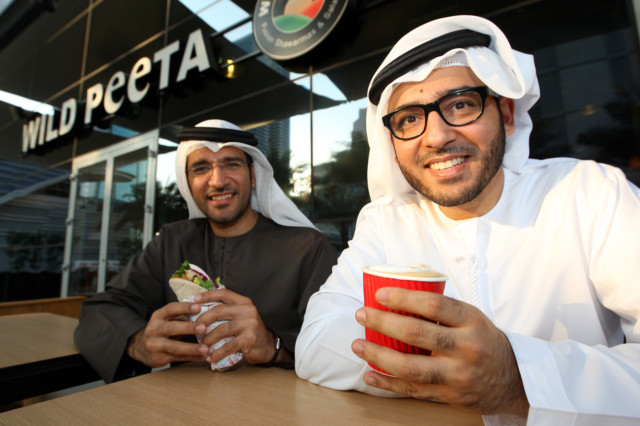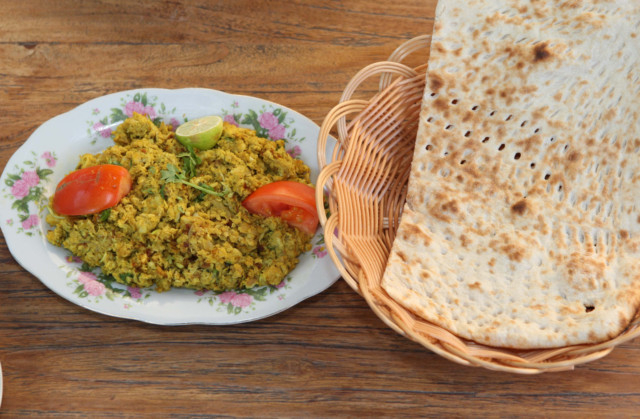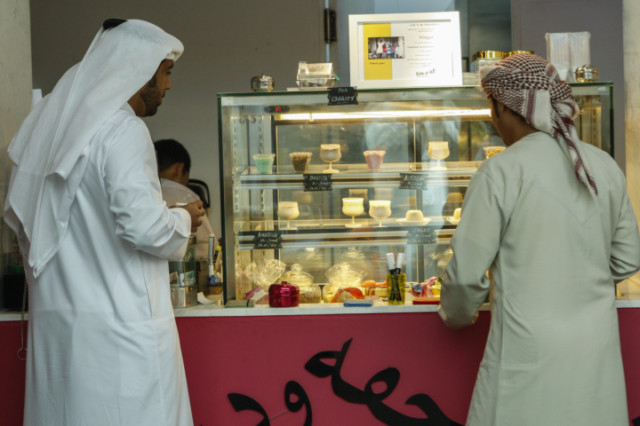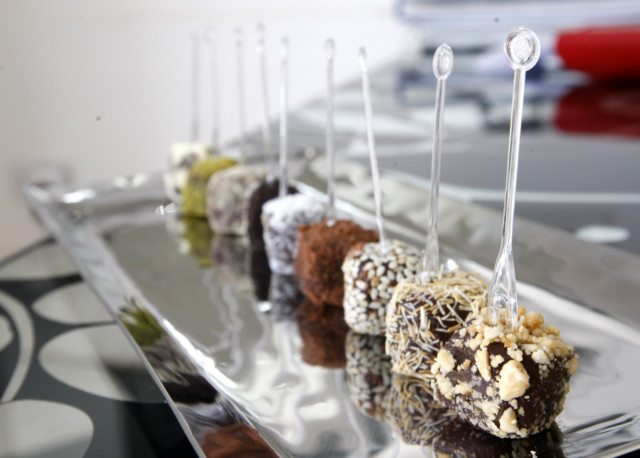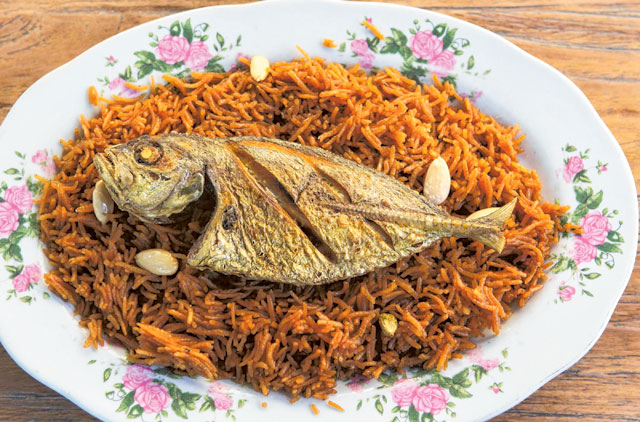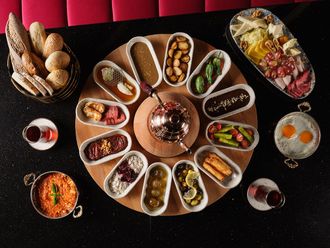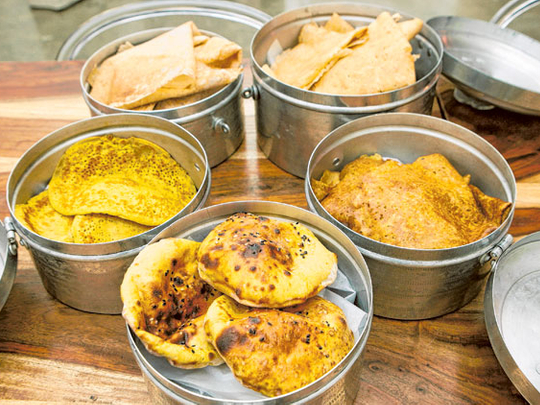
Craving Thai, Japanese or Lebanese fare — there are countless places for you to choose from. But for an expatriate or tourist yearning to try local dishes one has to seek out a traditional kitchen and order their machboos and biryani in bulk.
But a new army of youngsters are changing that, with zeal to put Emirati cuisine on the map. They have infused popular flavours in traditional recipes and made aseeda, regag and baith tmat accessible to all. With excited taste buds, I set out in search of these new breed of eateries.
Barzh.ae
For those in the dark about Emirati cuisine, barzh.ae is a good place to start.
Run by Fatma Al Khoori, Abdul Aziz Al Jazeri, Mohammad Al Hawi and Noora Al Qasim, it aims to take Emirati cuisine mainstream.
Visitors can find a list of the ambassadors of the cuisine, the ladies who run popular kitchens around the country, along with drool-worthy pictures and a short description of dishes. These kitchens churn out popular fare like mathrooba, rice or wheat cooked with meat, and biryani laham, your typical lamb biryani with a local twist, for large-scale events.
Just like the UAE is home to a colourful spectrum of nationalities, their cuisine is influenced by Indian, Persian and according to Al Hawi, Armenian cuisine.
“An Armenian friend told me that harees is originally from their country, so who knows,” Al Hawi says.
Just launched in October, the quartet hopes to include all restaurants serving their beloved home cuisine over the next months. They also want to open a café next year and hope to have an international chain in five years.
Klayya Bakery and Sweets
As I sat and waited for my host taking in the old school Arab prints juxtaposed with eclectic modern furniture, the waitress bought me a joyful cup of Haleeb Kastar, custard milk topped with red seeds.
“Whenever I travelled abroad, I always try to hunt down places that serve the authentic food and drink of the country,” said Asma Al Falasi, the lady behind Klayya. “And shame on us whenever people come here we do not have that. I decided against opening a restaurant because I wanted to create a relaxed atmosphere, like an afternoon spent at a small local house.”
Their specialities are Emirati breakfast, scrambled eggs infused with local flavour — think dates and eggs, served with bread and karak.
Karak, the tea that people queue up to drink at the small cafeterias around town, comes in three kinds: original, Klayya that comes with a little cookie and Shindagha, a spicy version.
The six different local breads are on offer too, from khameer to the slightly sweet muhala. I succumbed to a regag with egg and cheese. Served like a crepe, it is crispier than the French pancake and an interesting explosion of sweet and savoury.
Asm, an avid reader, also has a shelf of popular local books for patrons to peruse including Qais Sedki’s Arabic manga comic.
Wild Peeta
“Our country is a young and we do not have the infrastructure to ensure local produce and with the economy driven by imports, international brands have monopolised the food industry. This has made it difficult for the minority local population to make inroads, hence most choose to work in government departments,” said Mohammad Parham Al Awadi, with his brother Peyman echoing his views.
The brothers run Wild Peeta, the gourmet shawarma haunt.
“When Emiratis, both young and old, come and see us working in the restaurant, they are filled with pride. Many people have told us that this is the only place you can see Emiratis and expats interacting.”
An ode to their favourite Khaleeji stew, the Khaleeji Saloona shawarma is their best-seller.
The ingredients of the stew are mixed with baharaat, a spice mix to create an emulsified sauce which is the base of the shawarma.
“We asked our family and friends where we can find baharaat and they directed us to the old spice souq in Deira to a third- generation spice trader who grinds spices for Emirati families and uses only the best products.”
“We are inundated with Italian coffee cafes every 100 metres or so and we decided to create a drink with our local identity.”
The karak is brewed in a cappuccino machine and the end result is slightly sweet with a strong ginger flavour, Karakccino.
Gourmandise Sweets and Cakes
In a little corner of Al Wasl street, batheeth, traditionally a date crumble, is made with Oreos, marshmallows and peanut butter among others and is served with a toffee sauce and the closer to home sesame dip. Little chocolates stuffed with custard-like Aseeda and Khabeesa, a date and flour mix with rose water and cardamom, are served in shot glasses.
Mother-daughter duo Sahar and Mona Abu Aisha and their partner Abdullah Ahmad Al Marouri have started a culinary revolt, blending traditional and Western flavours and revamping how sweets have usually been served in large trays with a sleeker ‘sweets in a cup’ concept.
While they have received acclaim for their innovation, the ride hasn’t been an easy one.
“We sell our batheeth boxes for Dh135. Once a lady came in and gave me Dh250 for them. I gave her her change, she was shocked for she had been buying them for Dh250. Later we found a lady who had been buying our product in bulk, freezing and selling them for a higher price,” Mona said.
“This had compromised the high quality. We use only Khalas dates, known for their therapeutic attributes and our products are free from additives, preservatives and MSG.”
Al Fanar Restaurant
On the Monday afternoon we visited Al Fanar at Festival City, many Emiratis were digging into the Saloona Laham Badaweyah, a mutton stew eaten with rice, and the Aysh Mohamar ma Samak Magli, fried fish served with sweetened date rice.
“It was mainly Emiratis that came to our restaurant but now we are seeing many expatriates coming in, especially in the evening. And once they try our food they always come back,” the owner Hashim Al Marzouqi said.
“We are proud that we are the first authentic Emirati restaurant — the others have hummus and moutabel on the first page of their menus and even though we enjoy it this is not our cuisine.”
Al Fanar has expanded to Abu Dhabi with a branch opening at the Ritz Carlton compound in March next year.
Chef Ali Edbowa of Mezlai, Emirates Palace
Chef Ali Edbowa isn’t like anyone else with the white hat; he has the distinction of being the first Emirati chef.
“During a trip abroad, I asked my mother to give me recipes and the first time I cooked I was good at it and later I left a job in the army to become a chef,” Edbowa says.
“My mother and father were very happy but some of my friends stopped talking to me for a year but now they are happy too. I am very, very happy in the kitchen. You need that passion. In our culture people see it better for a man to work in the army or police. They think cooking is for women. Men have to show their strength at a job.”
“This is slowly changing; our country is a freedom country. There are few Emirati chefs because you need professional training to work in a hotel. I learnt at home to cook local food.”


